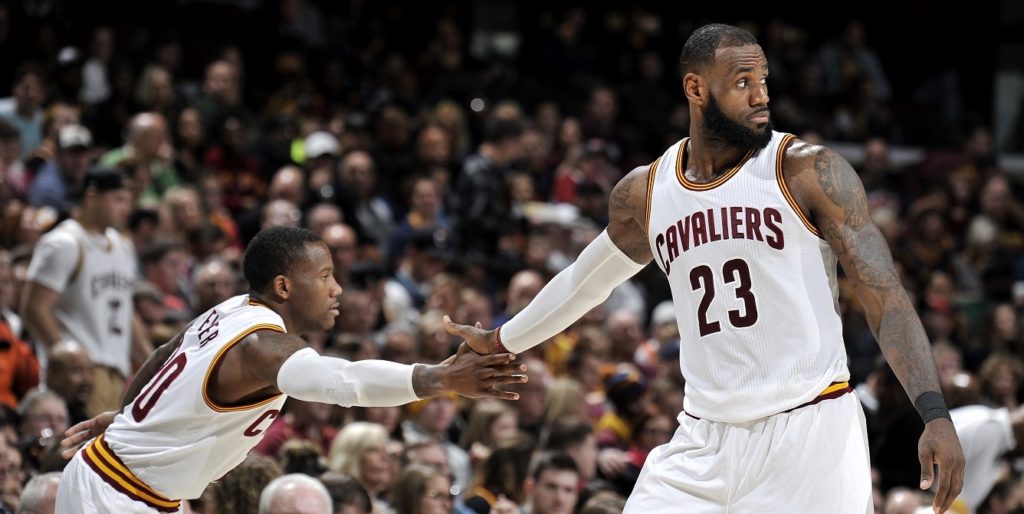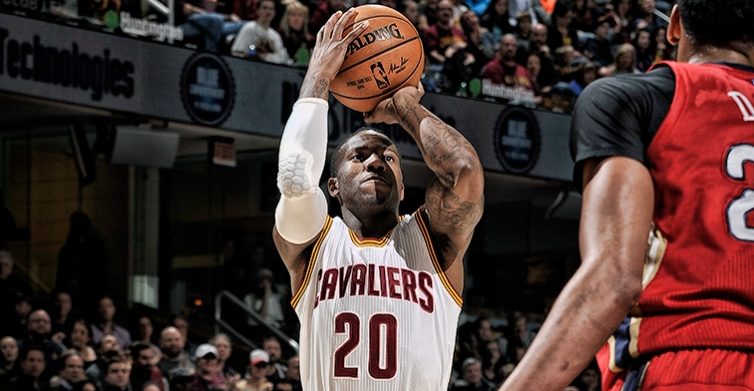The Cleveland Cavaliers failed to wrest another NBA title last June, falling prey to the Golden State Warriors in just five games of the championship series. That setback immediately puts into question how the Cavs would remodel their roster for them to remain competitive not only in the Eastern Conference, but as well in the NBA Finals, where the Warriors seemingly have one of their feet in for as long as Kevin Durant and Stephen Curry spend their prime years in Golden State threads.
Because it’s not possible to clone LeBron James 15 times over (and pay each $40 million per season), the Cavaliers have to find alternative options to ensure the continuation of the team’s success.
It doesn’t take an Ohio State University PhD holder to figure out where the Cavaliers need to improve or what positions on the team require attention, say the guard slot. The Cavs’ backcourt relied heavily on Kyrie Irving last season, primarily because there was no capable guard to back him up. Deron Williams’ whack job in the playoffs just added to the proof that he’s not the answer and while the Cavs scooped up the aging Jose Calderon from the streets of free agency, the Spaniard obviously isn’t going to be part of the Cavs in years to come.
For now, the Cavs have Kay Felder and someone who’s played thousands of miles away from Cleveland in Cedi Osman as their top long-term options as Uncle Drew’s main backup. That brings us to this: who among Felder and Osman is the best choice to earn that role?

David Liam Kyle | Getty Images
Let’s take a look at Felder first.
Perhaps the most noticeable advantage of Felder over Osman is that he’s actually part of the Cavs’ active roster—at least for now. Felder, 22, signed a three-year deal with the Cavs after the team selected him 54th overall in the 2016 NBA Draft but the last year of that contract is unguaranteed so it’s essential for his job security that he performs well this coming season.
Felder has no way to go but up after putting up just 4.0 points on 39.2 percent shooting and dishing 1.4 assists per game last season though of course, it’s a bit unfair to judge him based entirely on what he did in the very few 9.2 minutes per game he’s played across 42 contests in his rookie year.
Felder’s small 5-9 frame has him compared often to Nate Robinson and Isaiah Thomas because he’s as athletic as the former and has the potential to be as good a scorer as the latter when given the opportunity. That said, Felder is a more gifted passer than both Robinson and Thomas.
This wouldn’t come as a surprise to anyone who’s watched Felder play in college and in the NBA D-League. Felder played three years for the Oakland Golden Grizzlies program, leading the squad in scoring (24.4 per game) and assists (9.3) in the 2015-2016 campaign, the same season he almost led the nation in both points and dimes.
One glaring knock on Felder is that he’s seen as a liability on defense given his size, a not-so fresh take for small players like him. But if he’s just going to be a backup for Irving, the Cavs could live with his defensive shortcomings if it meant getting a good source of bench points just like how the Phoenix Suns and the Boston Celtics used to with Thomas before he blossomed into an All-Star.

Osman, on the other hand, has a completely different built than Felder’s.
At 6-8, Osman has a little LeBron in him, capable of playing and defending multiple positions. That’s something Felder can’t honestly put on his resume. So far in his Euroleague career, Osman has averaged 6.7 points on 41.6 percent shooting and 2.9 rebounds per game. He doesn’t turn the ball over that much, committing just 1.3 miscues per 36 minutes played partly because he doesn’t need to have the ball to be an effective player.
The Cavs own the rights to Osman, who was acquired by the team from the Minnesota Timberwolves in 2015 after being selected 31st overall in that year’s draft. Osman has played in the Euroleague for Anadolu Efes the past four years, but per Euroleague reporter David Pick, the Turkish guard-forward hybrid could be NBA-bound soon with Osman and the Cavs already seemingly under negotiation.
Source: Cavs stash Cedi Osman is headed to Cleveland to meet staff and informed Anadolu Efes he'll pull the trigger on his $1M NBA out.
— David Pick (@IAmDPick) June 30, 2017

David Richard | USA TODAY Sports
The possibility of Osman playing for the Cavs next season should be thrilling news for the team’s fans. For one, Osman will come in cheap since he has zero NBA experience to use as leverage. More importantly, his combination of size and versatility should positively impact the Cavs’ backcourt dynamics, particularly on defense. The Cavs finished last season as one of the worst defending teams against opposing guards, whom they allowed to score 47.4 points per game.
Osman’s perimeter game could use some work after shooting just 34.0 percent from deep last season for Anadolu Efes, but at only 22-year-old, he’s got a ton of time to develop a dependable and consistent jumper.
Having presented a brief case for each of the two players, which one do you think is the more worthy of an significant role for the Cavs?
